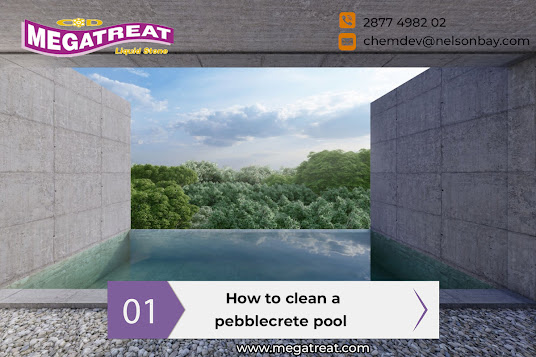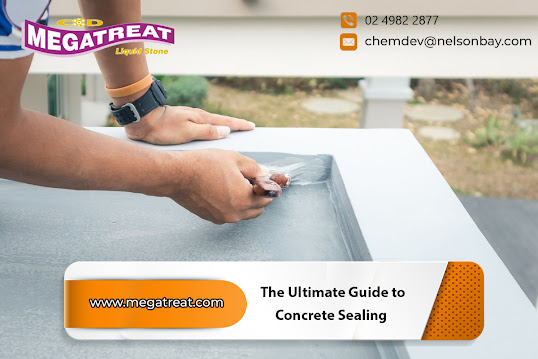Your Ultimate Guide to Pebblecrete Pool Maintenance
Pebblecrete swimming pools are stunning and durable, and they have a special exposed aggregate surface that makes them far more appealing than pools made of regular concrete. However, to maintain their finest appearance, pebblecrete pool surfaces still need to be cleaned frequently, just like any other kind of surface.
If you don't routinely clean your pool, you can have problems like metal stains, organic stains, and black algae stains that can be extremely challenging to remove even with a strong stain remover. It's critical to maintain the cleanliness of your pebblecrete pool because pool stains are ugly and may even change the colour of your pool's water.
Being a long standing trusted pebblecrete cover manufacturer in Nelson Bay, we'll go over a few methods for cleaning your pebblecrete pool and getting rid of stains in this article. We'll also give you some fast advice on how to maintain your pool clean and keep out new stains. If you are a pebblecrete pool owner, continue reading to learn everything you need to know!
Drain the pool completely
Like most other pebblecrete cover manufacturers in Nelson Bay, we’ll recommend you to totally drain the water if your pool has any noticeable stains that you are looking to get rid of. By completely emptying your pool, you can thoroughly clean your pool around the start of the swimming season or when the weather begins to turn cold and you need to empty your pool anyhow.
Always remember to follow the recommended methods to ensure that all of the water is gone and the pool is completely drained. Be patient, and ensure you're emptying the pool into a location like a storm drain or your home's sewer clean-out. Depending on your pool size, this could take lesser than 12 hours or even most of the day.
Consider using your pool cleaning and begin scrubbing
Most small pool stains should be easy to remove with a little elbow grease, a garden hose, and some pool cleanser or liquid chlorine detergent. To protect your skin and face from caustic cleaning products, make sure to wear long pants and sleeves, gloves, eye protection, and closed-toe shoes.
Use the hose to thoroughly wet the surface before applying your cleaning solution. We advise working the cleaning solution into the pebblecrete and then removing it using a sizable, stiff-bristled brush. A few repetitions of this procedure will start to remove the majority of the staining.
Use pressure washer to get better results
Don't want to scrub for a long time? The fastest way to clean your pool is with a pressure washer. Most hardware stores rent out pressure washers, or you can buy one for not too much money. You would do well to invest in a pressure washer because you can use it to clean the pool surface and metal parts, saving you a lot of time.
Once again, when operating your pressure washer, be careful to wear the appropriate safety gear. After that, just turn on the appliance, add your detergent, and spray the pebblecrete surface with water. The intense water jet will clear away surface stains and discoloration without damaging the pebblecrete cover and aggregate.
Use a "turbo nozzle" and algaecide as you move from the walls to the floor if there are any really tough stains. After that, simply flush any remaining detergent off your walls with clean water to finish! Repeat the technique after giving the pool 24 hours to dry out if there are any remaining stains.
Consider using mild acids for dark or significant stains
It's possible for algae to stain your pebblecrete so deeply that it cannot be cleaned by scrubbing or power washing if you have major algae problems brought on by problems like poor pH levels, the wrong chemical balance, or an improper chlorine level.
If this occurs, you might wish to try muriatic acid or citric acid for acid cleaning. An acid wash employs a powerful acid that really "eats away" at the pebblecrete plaster's topmost layer. Algae that is resistant to a straightforward pressure wash is destroyed as it permeates the pebblecrete's porous structure.
Simply combine a solution with an equal amount of hydrochloric acid to acid-wash your pool (muriatic acid). To avoid corrosion, spray this solution along the pool's sides, scrub it for about 30 seconds, and then rinse it out with fresh water. When you're finished, use an alkali compound like sodium carbonate to neutralise the acid, then rinse the pool well.
Use safety gear like gloves and a respirator, and proceed with extreme caution since hydrochloric acid is highly caustic. Always acid wash your pool with at least one other person present. We recommend you not attempt to do this on your own if you are unsure of your abilities to handle acid properly. Alternately, you might engage experts to acid wash your pool on your behalf.
Keep your pool and water clean to avoid future stains
The most crucial thing you can do to stop further stains from appearing in your pool is to frequently test the water and check the chlorine level and chemical balance. While some staining is unavoidable, maintaining your pool's water will help you avoid algae growth, lower your chance of metal stains, and keep it looking wonderful for years to come.
Get Help With Your Pebblecrete Covers - Contact Megatreat Liquid Stone!
As a trusted pebblecrete cover manufacturer, Megatreat Liquid Stone is here to assist you with swimming pool repairs, maintenance, and pebblecrete cover applications in Nelson Bay. To learn more, get in touch with us online or call us at 0249822877.

